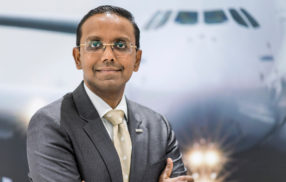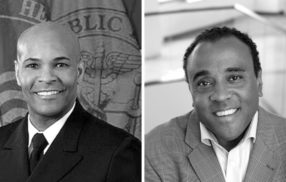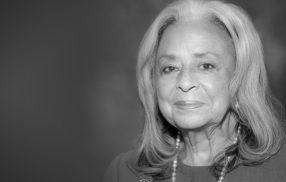
Airbus Asia-Pacific President Details 3 ‘Experience Multipliers’ to Boost Your Career
By Jay Hodgkins
University of Virginia Darden School of Business alumnus Anand Stanley (MBA ‘03) wanted to be a consultant at McKinsey & Co. after graduation, but he wouldn’t be given that chance.
Looking for direction in his post-MBA life, he had a heart to heart with Professor John Colley, and the legendary professor told him he’d eventually need “three legs to stand on”— proficiencies, essentially — if he wanted to rise as a leader: finance, operations, and sales and marketing. But so long as he started his career on one of those tracks, his career trajectory wouldn’t be encumbered. With that advice, he accepted a position at manufacturing conglomerate United Technologies Corp. (UTC).
“I joined UTC grudgingly, but they taught me a crazy amount of stuff,” Stanley said.
And that early post-MBA career experience served as the foundation of the career advice the president and head of region for Airbus Asia-Pacific offered the audience at a virtual Darden Leadership Speaker Series event in April.
“Where you start doesn’t matter. Start somewhere and develop good skills,” Stanley said. “At the end of the day, people are hiring good athletes. How many touchdowns can you score. How many home runs can you hit. What skills you learn and who teaches them to you matters.”
3 ‘Experience Multipliers’ to Launch a Career Into Leadership
While top notch skills benefitting core areas of business are a non-negotiable undergirding the career prospects for every aspiring leader, Stanley said the quality of your work experiences does matter. He named three types of experiences that serve as career multipliers.
- Cross-function experience: In his early career at UTC, the rotational nature of his role allowed Stanley to gain experience in supply chain, procurement, sales, M&A and many other functions
- Cross-industry experience: Working for a conglomerate that operated in industries ranging from engines and aerospace systems to HVAC and elevators to industrial products, Stanley learned more than one industry at just one company as he rotated roles within UTC.
- Global experience: Stanley said there is a steep learning curve when you move from country to country, and you have to treat it like a case study where you prepare so that you can adjust to the new styles of work and communication within a new culture.
“Cross-industry, cross-functional, cross-country experience is exponential. It’s like dog years. It accelerates you. But there has to be core skill there that serves as your foundation,” Stanley said. “This is the reason I believe people hire me. That’s what they see in me.”
The Future of Aerospace
Stanley described the industry in which Airbus operates — one with relatively few global competitors but an extreme breadth of business units including aerospace, helicopters, space, and military and defense — as an extremely difficult one with challenges that rise to the level of geopolitical and international diplomacy.
He joked that MBAs should think twice before leaping into aerospace, but he also touted the bright outlook for the future of aviation and the global growth of the space industry.
On the positive side, he predicted leisure travel would return to prepandemic levels, boosting aerospace and airlines. Given the growing importance of web hosting and communications, as well as strategic import to governments and national defense, he said he expects the space segment to remain strong. And with global commerce picking back up following the pandemic-driven economic downturn, as well as a desire to diversify supply routes after the incident that stopped shipping through the Suez Canal for days, he predicted solid growth for air cargo and freighter traffic.
On a more serious societal note, Stanley flagged growing geopolitical concerns as a driver of sales in the military and defense sector.
“We are moving into a world that is far more unstable,” Stanley said. “New fault lines are going back 100 years. We’ve forgotten history. In the area of defense, things are unfortunately going to where people need to arm themselves again.”
The Art of Leadership and Decision-Making
Whether leading through the ongoing coronavirus pandemic or navigating tricky, high stakes geopolitical challenges with the leaders of sovereign nations, Stanley said he follows the leadership advice of Dean Emeritus and University Professor Bob Bruner: be high touch, high tone, high octane.
“I go back to Bob Bruner’s leadership principles. They inspired me and I internalized them,” Stanley said.
He offered several other tips for successful leadership, including:
- Lead with integrity.
- Do things quickly. “It’s OK to make mistakes,” Stanley said. “The worst thing you can see people do is being indecisive.”
- Set aside your ego and hire the most talented people. “I have no problem hiring people better than me. This is a multiplier for me because I bring in people who make me stronger. I’m humble and I’m not threatened.”
- Be simple. “In complex organizations with thousands of people, it’s good to have a constancy of purpose, a simple purpose, because otherwise there is a lot of dissonance. So I keep very simple, clear goals.”
When it comes to good decision-making, particularly with so much uncertainty in the world, Stanley said the process must start before jumping straight to a decision. First, particularly when starting a new job or project, he advised talking to all stakeholders to get an idea of expectations and understand your mandate. Second, he said a leader must grasp the complexity of their mandate and simplify it. At that point, Stanley says clarity emerges, creating focus on what must be done. Only then when focus is achieved does decision-making become clearer, Stanley said.
“Focus leads to decisions. Decision-making leads to execution and delivering results,” Stanley said.
The University of Virginia Darden School of Business prepares responsible global leaders through unparalleled transformational learning experiences. Darden’s graduate degree programs (MBA, MSBA and Ph.D.) and Executive Education & Lifelong Learning programs offered by the Darden School Foundation set the stage for a lifetime of career advancement and impact. Darden’s top-ranked faculty, renowned for teaching excellence, inspires and shapes modern business leadership worldwide through research, thought leadership and business publishing. Darden has Grounds in Charlottesville, Virginia, and the Washington, D.C., area and a global community that includes 18,000 alumni in 90 countries. Darden was established in 1955 at the University of Virginia, a top public university founded by Thomas Jefferson in 1819 in Charlottesville, Virginia.
Press Contact
Molly Mitchell
Senior Associate Director, Editorial and Media Relations
Darden School of Business
University of Virginia
MitchellM@darden.virginia.edu







